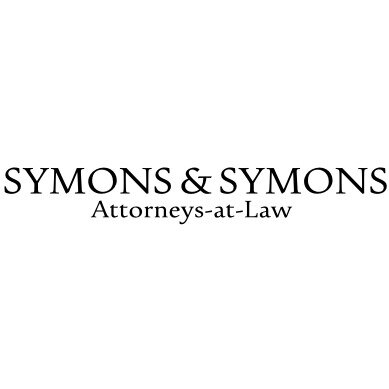Best Corporate & Commercial Lawyers in Cayman Islands
Share your needs with us, get contacted by law firms.
Free. Takes 2 min.
Or refine your search by selecting a city:
List of the best lawyers in Cayman Islands
About Corporate & Commercial Law in Cayman Islands
Corporate and commercial law in the Cayman Islands centers on the regulation and operation of business entities and commercial transactions. The Cayman Islands are renowned as a global hub for offshore financial services, attracting a vast range of companies, investment funds, and financial institutions. The jurisdiction boasts a flexible legal framework based on English common law, combined with stable local statutes, making it particularly favorable for international business operations, joint ventures, company formations, mergers and acquisitions, and commercial dispute resolution.
Why You May Need a Lawyer
There are various situations where the expertise of a Cayman Islands corporate or commercial lawyer becomes essential. Some common scenarios include:
- Setting up or structuring a company or investment fund in the Cayman Islands
- Complying with regulatory obligations and filings
- Negotiating and drafting commercial agreements
- Guiding mergers, acquisitions, or business disposals
- Facilitating joint ventures and cross-border transactions
- Advising on director duties and shareholder rights
- Resolving commercial disputes or managing insolvency procedures
- Ensuring anti-money laundering (AML) and economic substance compliance
- Managing licensing requirements for specific business sectors
- Dealing with restructuring or winding up a company
Legal professionals help clarify local requirements, mitigate risks, and protect business interests, making their involvement crucial at virtually all stages of corporate and commercial activity in the Cayman Islands.
Local Laws Overview
Some of the most significant laws and regulations governing corporate and commercial activities in the Cayman Islands include:
- Companies Act (2023 Revision): The principal statute governing the incorporation, operation, and dissolution of companies, including exempted companies often used in offshore structures.
- Limited Liability Companies Act: Outlines a flexible framework for LLCs, providing features similar to those found in US LLC legislation.
- Partnerships Act: Regulation of general and limited partnerships, widely used for investment fund structures.
- Mutual Funds Act and Private Funds Act: Set out the rules for the regulation and oversight of investment funds in the jurisdiction.
- Beneficial Ownership Regime: Requirements ensuring the identification and registration of beneficial owners of certain Cayman entities.
- Anti-Money Laundering (AML) Regulations: Mandate detailed protocols for due diligence, record-keeping, and reporting to combat financial crimes.
- Economic Substance Act: Requires certain businesses to demonstrate substantial activity and presence within the Cayman Islands.
- Insolvency and Restructuring Regimes: Comprehensive laws governing the restructuring, liquidation, or winding-up processes of companies.
These legal frameworks support a robust and business-friendly environment but require careful attention to compliance, disclosure, and reporting standards.
Frequently Asked Questions
What types of companies can I set up in the Cayman Islands?
You can register exempted companies, non-resident companies, ordinary resident companies, limited liability companies (LLCs), and partnerships. Exempted companies are the most popular for international business purposes.
Can foreign nationals own companies in the Cayman Islands?
Yes, there are no restrictions on foreign ownership for most company types. Many offshore companies are wholly owned by foreign individuals or corporate entities.
What is an exempted company in the Cayman Islands?
An exempted company is designed mainly for non-residents conducting business outside the Cayman Islands. It benefits from confidentiality, tax neutrality, and flexible corporate structures.
Do I need a local director or shareholder to incorporate a company?
No local directors or shareholders are required for most Cayman companies. Non-residents can act as directors and shareholders.
Are there any taxes on companies in the Cayman Islands?
The Cayman Islands do not levy direct taxes such as income, capital gains, or corporation tax on companies. Government fees and annual filings apply instead.
What are the ongoing compliance requirements?
Requirements include maintaining a local registered office, keeping statutory registers, preparing annual returns, and fulfilling AML and economic substance obligations where applicable.
Can Cayman Islands companies open bank accounts internationally?
Yes. Cayman companies can open bank accounts both in the Cayman Islands and other jurisdictions, subject to the bank’s AML and compliance procedures.
What are beneficial ownership requirements?
Certain companies must identify and provide details of their ultimate beneficial owners in a secure searchable registry accessible by Cayman Islands authorities.
How are commercial disputes resolved?
Most disputes are resolved through the Cayman Islands courts, specializing in commercial matters. Arbitration and mediation are also often used.
How do I close or wind up a Cayman company?
Winding up can occur through voluntary liquidation, compulsory court-ordered winding up, or strike-off from the register. Legal advice ensures all closure procedures are correctly followed.
Additional Resources
If you need further guidance or documentation, these resources and authorities may be useful:
- Cayman Islands General Registry - for company and partnership registrations
- Cayman Islands Monetary Authority (CIMA) - for financial sector oversight and regulation, including funds and insurance
- Cayman Islands Department for International Tax Cooperation - for beneficial ownership and tax information exchange
- Cayman Islands Chamber of Commerce - for business support, resources, and advocacy
- Government of the Cayman Islands - for regulations, acts, and official guidance
- Local law firms specializing in corporate and commercial matters
Next Steps
If you require assistance with any aspect of corporate or commercial law in the Cayman Islands, start by identifying the specific nature of your legal matter, such as company formation, regulatory compliance, commercial transactions, or dispute resolution. Next, consult with a qualified Cayman Islands lawyer or a reputable local law firm with expertise in your area of need. Be prepared to share clear information about your business goals and background to receive advice tailored to your situation. Taking proactive counsel will help you navigate the local legal environment, avoid pitfalls, and maximize the benefits of doing business in the Cayman Islands.
Lawzana helps you find the best lawyers and law firms in Cayman Islands through a curated and pre-screened list of qualified legal professionals. Our platform offers rankings and detailed profiles of attorneys and law firms, allowing you to compare based on practice areas, including Corporate & Commercial, experience, and client feedback.
Each profile includes a description of the firm's areas of practice, client reviews, team members and partners, year of establishment, spoken languages, office locations, contact information, social media presence, and any published articles or resources. Most firms on our platform speak English and are experienced in both local and international legal matters.
Get a quote from top-rated law firms in Cayman Islands — quickly, securely, and without unnecessary hassle.
Disclaimer:
The information provided on this page is for general informational purposes only and does not constitute legal advice. While we strive to ensure the accuracy and relevance of the content, legal information may change over time, and interpretations of the law can vary. You should always consult with a qualified legal professional for advice specific to your situation.
We disclaim all liability for actions taken or not taken based on the content of this page. If you believe any information is incorrect or outdated, please contact us, and we will review and update it where appropriate.
Browse corporate & commercial law firms by service in Cayman Islands
Cayman Islands Attorneys in related practice areas.
Browse corporate & commercial law firms by city in Cayman Islands
Refine your search by selecting a city.

















